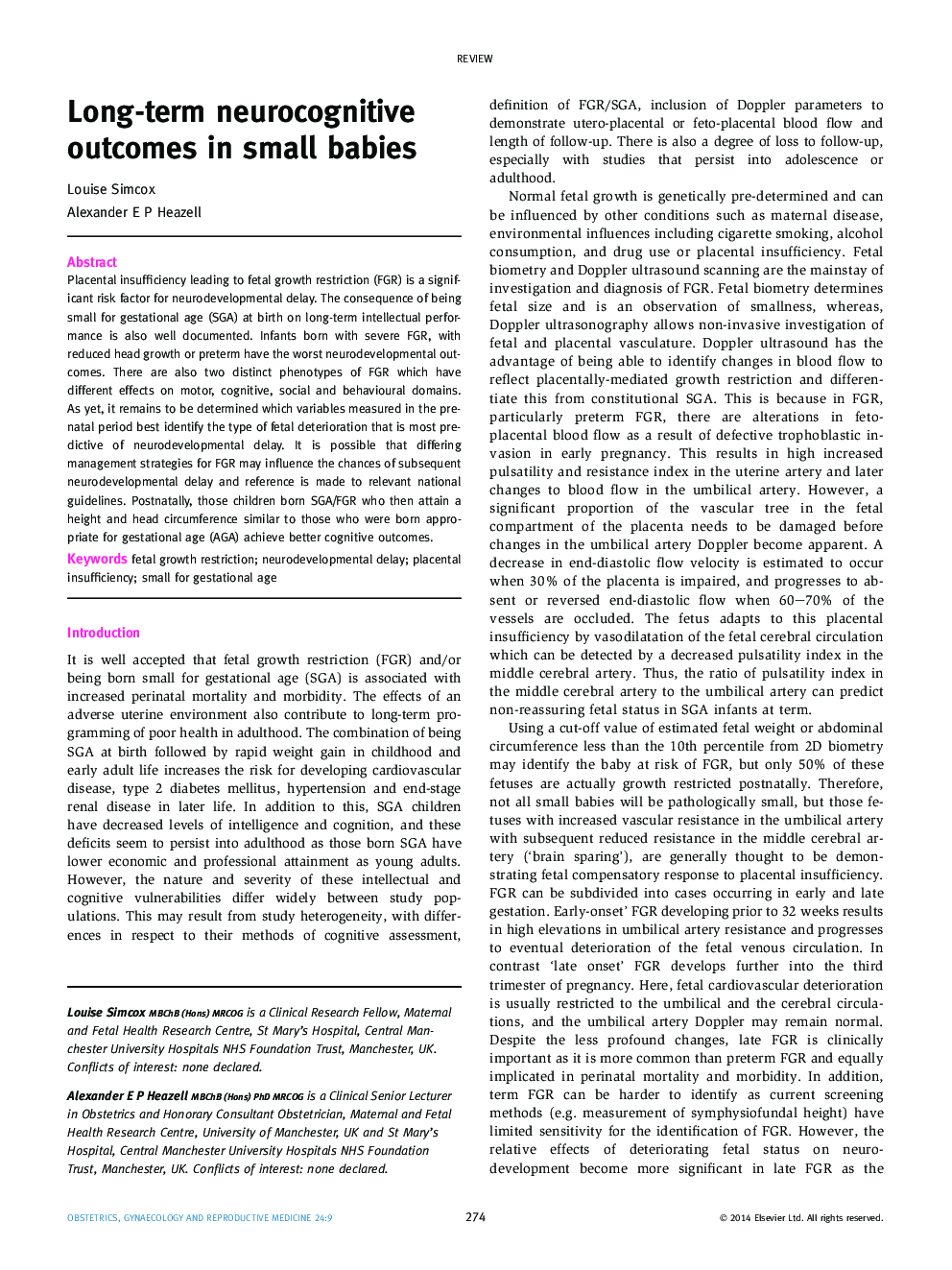| Article ID | Journal | Published Year | Pages | File Type |
|---|---|---|---|---|
| 3966619 | Obstetrics, Gynaecology & Reproductive Medicine | 2014 | 5 Pages |
Placental insufficiency leading to fetal growth restriction (FGR) is a significant risk factor for neurodevelopmental delay. The consequence of being small for gestational age (SGA) at birth on long-term intellectual performance is also well documented. Infants born with severe FGR, with reduced head growth or preterm have the worst neurodevelopmental outcomes. There are also two distinct phenotypes of FGR which have different effects on motor, cognitive, social and behavioural domains. As yet, it remains to be determined which variables measured in the prenatal period best identify the type of fetal deterioration that is most predictive of neurodevelopmental delay. It is possible that differing management strategies for FGR may influence the chances of subsequent neurodevelopmental delay and reference is made to relevant national guidelines. Postnatally, those children born SGA/FGR who then attain a height and head circumference similar to those who were born appropriate for gestational age (AGA) achieve better cognitive outcomes.
